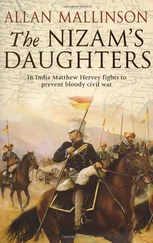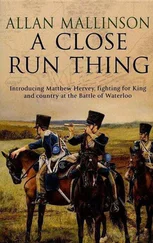Hervey knocked at the door. Elizabeth rose and went to it. ‘Ah, brother! Have you changed your mind? Are you not meeting Mr Shelley, then?’
‘Yes, but later. I came to see how you were. We hardly had an opportunity to speak yesterday.’
‘I am very well. You know it. Mary Shelley is engaging company.’
‘So you do not mind my spending so little time with you at present?’
‘I had not accounted it, Matthew. We are here on indefinite vacation, as you have said. Allow me to address these letters I wrote last evening, and then I shall be all attention.’
Hervey sat and contemplated his sister as she attended to her familial duties. Her defiant good spirits had been his support for so many years, unsung, unrecognized even, that he marvelled at her constancy. And not only that. Henrietta had been her companion long before she had been his. Elizabeth’s only companion. Her society since then had been the aged, the sick, the poor and the infirm. He, her brother, had shown scant regard for her bereavement. She held herself ready to assume whatever duties he asked of her in respect of his infant daughter, or indeed of himself. A brother had no right to expect such devotion, the more so when it went uncherished. ‘Shall we go to the opera tonight?’
Elizabeth turned. ‘Why, Matthew! You have not once suggested we go to the opera since we came here. I should like nothing more. Are the Shelleys to go too?’
‘I was not intending that we ask them.’
When Elizabeth showed surprise, her eyebrows arched so much that the eyes themselves seemed to grow larger. They had always been kind, but Hervey could also see they were eyes that might attract. And now that she had given up her ringlets, she ought to make men’s heads at least pause, if not quite turn — as indeed he had observed at Signora Dionigi’s conversazione . What suitors she had had in Wiltshire, truly, he was not sure, for in spite of his mother’s lamenting that Elizabeth had willed herself into her unmarried state, there was no objective evidence that there had been any actual proposals. One way or another, he had better have a care of his sister.
‘Matthew?’
‘Oh, I … I beg your pardon. I was quite preoccupied.’
‘I asked what is the opera this evening.’
‘That I don’t remember, save that the composer is Italian.’
Elizabeth frowned. ‘I had not imagined otherwise. But you are very good to me to commit yourself to an entertainment about which you know nothing.’
Hervey nodded. Perhaps he had made a beginning.
‘And now you shall spend the day climbing the ruins of the baths again?’
‘No, not today. I’m meeting Shelley in an hour, but then I intend visiting the English College. I don’t suppose he will agree to come with me.’
‘I have resolved to move from the Corso,’ Shelley announced.
Hervey sipped more of his cooling white wine, diluted and made frizzante by water from a sulphur spring near the city walls. ‘For what reason? I think your arrangements there are admirable.’
‘They are. But I confess to being out of sorts with the place ever since that business in the post office.’
Hervey sighed, and not without sympathy, although it had been the assault that had effected their introduction. ‘I still turn over in my mind what could so animate a man to strike another without warning. Was it really dislike of your philosophy? Does such a thing move rational men to common assault?’
It was Shelley’s turn to sigh. ‘The magistrate was not inclined to examine his mental state, so we cannot be sure. In England, you know, we were subject to such social hatred as was impossible to bear.’
Hervey shook his head. ‘You know that I dispute every bit of that part of your philosophy, yet I could never harry a man for it. Tolerance is the English virtue, is it not?’
Shelley smiled. ‘You and I are so very far separated, indeed, that I marvel we do sit here peaceably.’
‘I hope it would be so in England, too.’
Shelley’s expression changed to one of grim determination. ‘I shall never go back to England!’
Hervey looked shocked. ‘You must never say that! You cannot have so poor an opinion of your country.’
‘For as long as there’s a crowned head, I shall never set foot there!’
‘But—’
‘Nor a church established!’
‘There is no institution on earth that can claim to be without fault, Shelley!’
‘The Church of England is not so much without fault as without God! And certainly her religion is without Christ!’
Hervey frowned. ‘Now you are being … controversial .’
‘Am I? Am I indeed? You forget I was first at Eton and then at Oxford!’
Hervey prolonged his frown. ‘There is a little more to the world than those places, Shelley!’
‘I speak of institutions, and I count the Church in England no less corrupt than that here in Rome.’
Hervey would not respond. There seemed little point in addressing so vehement an opinion at the present.
‘You are a queer fellow, Hervey. You would call me a godless revolutionary, and yet you choose to hazard your soul in my company.’
‘I would call you more, but only to your face! But if you own to godlessness then the other sins are merely consequential.’
‘Christ alive! I half believe you mean it. What makes you so sure of your religion? You’ve had cause enough for a whole charterhouse to doubt it.’
Shelley touched deep at that moment, and not solely on account of Henrietta. Hervey said nothing.
Then Shelley’s demeanour changed altogether. He gave a shrug. ‘I myself contemplated ordination lately.’
Hervey fixed him with a disapproving look. ‘And what decided you against so outlandish a notion?’
Shelley laughed and clasped his hand on Hervey’s. ‘You are, I think the saying is, “steady under fire”.’
Hervey poured more wine, feigning not to take notice. ‘I have a mind to visit the English College this afternoon. Shall you come?’
‘You surprise me, Hervey,’ replied Shelley, with a distinctly mock expression of it. ‘Why should so unbending a son of the established church want to see the English College?’
‘Why should I not want to see it? It has a claim to great antiquity. It is connected with King Alfred.’
‘Since Rome is nothing but antiquity, how can that be any particular recommendation?’
Hervey was determined not to be drawn. ‘Milton visited there, so I do not see that I may not.’ And — though there was no point in saying it — John Keble had insisted he did.
Shelley looked sceptical. ‘He visited, did he? Sacred Milton?’
‘I am sure of it.’
‘Then it is settled. I owe Milton too much to disregard his example.’
Hervey nodded, though in truth Shelley’s contrariness could exasperate.
‘Do you know his lines on the massacre in Piedmont?’
‘Indeed I do,’ said Hervey, pouring more sulphur water into his glass.
‘I have often wondered in what manner Milton wished God to “avenge His slaughtered saints”.’
Hervey was disinclined to discuss eschatology, however. ‘You know, I can admire your Cromwell for the stand he took in the affair.’
Shelley looked wary, expecting a trick.
‘Did you not know? He wrote to the Emperor and others on behalf of the Protestants, urging all sorts of visitations on the Duke of Savoy if he did not stop persecuting them. And it worked, it seemed.’
‘It is curious to imagine there are any Protestants in Italy. The country is so unsuited to fervour in such matters.’ Shelley took a sip of his wine, guardedly.
‘Well I may tell you that there are, and very proud too, and called Valdensians, though I can’t recall why. There is an Englishman who now ministers to them, who lost a leg at Waterloo. A general. I saw him carried from the field. Elizabeth and I thought we might call upon him on our way home.’
Читать дальше










